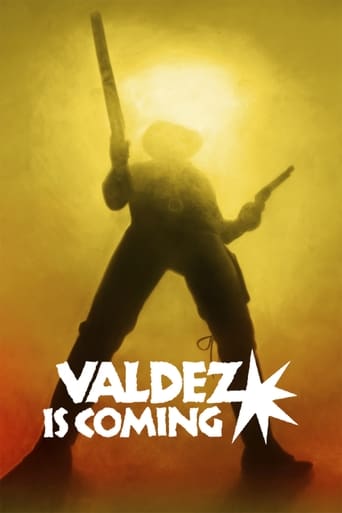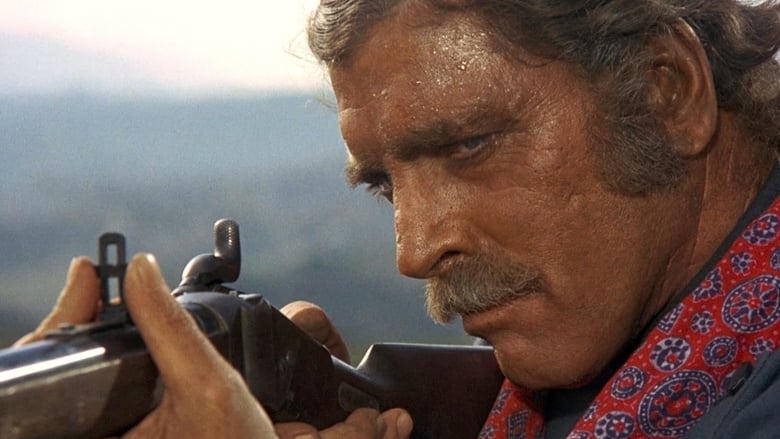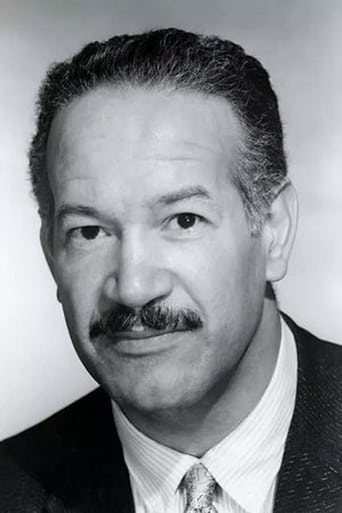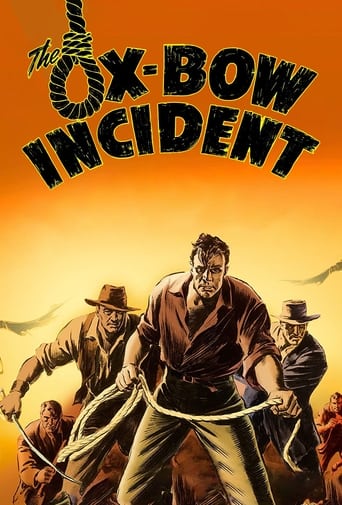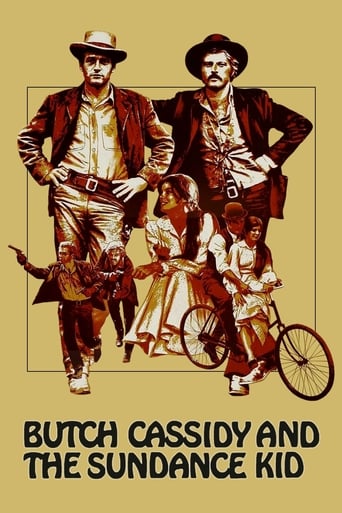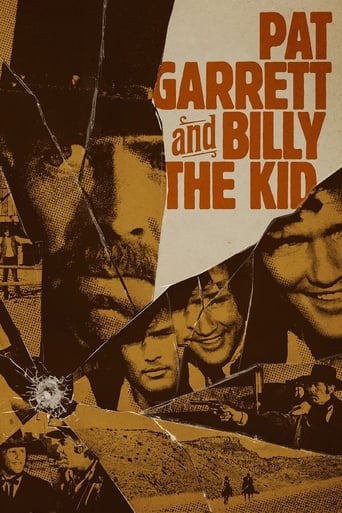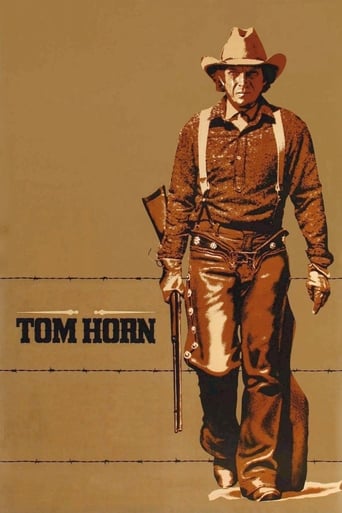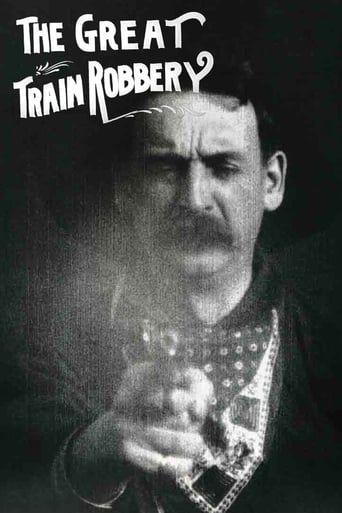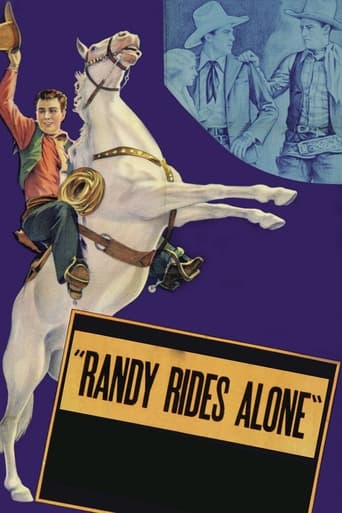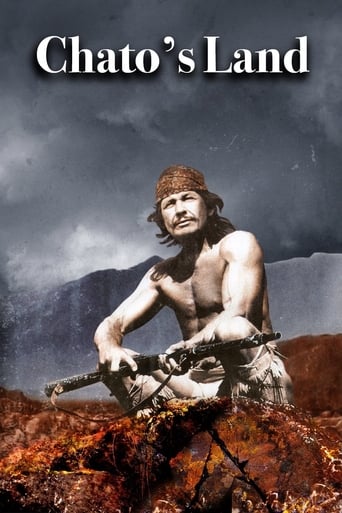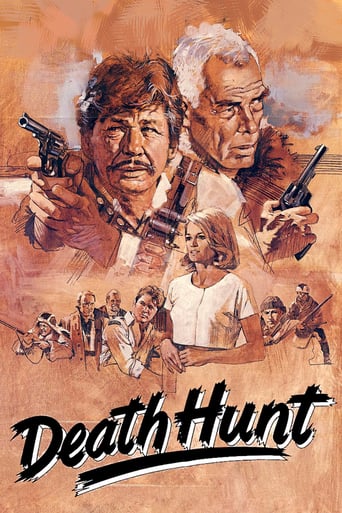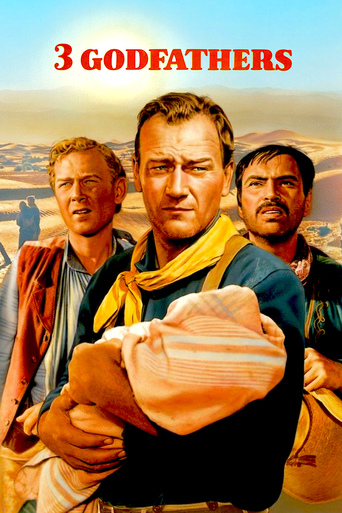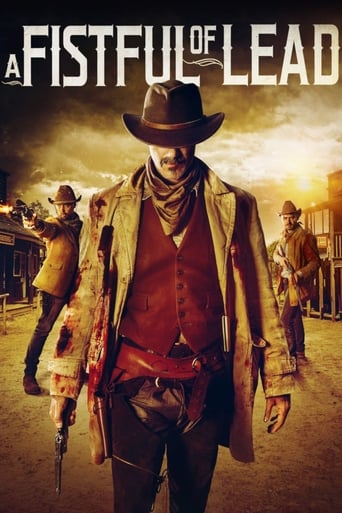Valdez Is Coming (1971)
Old Mexican-American sheriff Bob Valdez has always been a haven of sanity in a land of madmen when it came to defending law and order. But the weapon smuggler Frank Tanner is greedy and impulsive. When Tanner provokes a shooting that causes the death of an innocent man and Valdez asks him to financially compensate the widow, Tanner refuses to do so and severely humiliates Valdez, who will do justice and avenge his honor, no matter what it takes.
Watch Trailer
Free Trial Channels
Cast


Similar titles
Reviews
Very very predictable, including the post credit scene !!!
Strong and Moving!
There is just so much movie here. For some it may be too much. But in the same secretly sarcastic way most telemarketers say the phrase, the title of this one is particularly apt.
A lot of perfectly good film show their cards early, establish a unique premise and let the audience explore a topic at a leisurely pace, without much in terms of surprise. this film is not one of those films.
Screen legend Burt Lancaster plays Bob Valdez, an ageing Mexican-American lawman who is called upon to assist in the apprehension of a supposed murderer. The resulting confrontation was instigated by thoroughly nasty land baron Frank Tanner (Jon Cypher), who turns out to be a very bad guy indeed. The murder suspect ends up dead, and Valdez believes that his Indian wife should be compensated. So he goes to Tanner to appeal to him to pony up half of the needed dough ($100) but Tanner and his men laugh at Valdez and humiliate him instead, tying him to a cross. After Valdez is freed, he's ripe for revenge, abducting Tanners' woman Gay Erin (Susan Clark) as he gets ready for a final showdown.While this entertaining Western does ultimately turn rather conventional, it's still an interesting and thoughtful look at bigotry in the Old West. Based on the novel by Elmore Leonard, and scripted by Roland Kibbee and David Rayfiel, it combines some complex character relationships and details with a tried and true revenge story. Lancaster hand picked Edwin Sherin to direct the feature, based on Sherins' success guiding "The Great White Hope" on Broadway, and Sherin proves up to the task of working in this genre. He gets solid performances out of a well chosen cast, and gives certain scenes just the right amount of tension. Lancaster is quietly authoritative and appealing as Valdez, and Cypher is just right as his snake-mean adversary. The latter gets an "introducing" credit here, as do the late, great actors Richard Jordan, as the cowardly R.L. Davis, and Barton Heyman, as Tanners' main henchman El Segundo. There's also a brief scene for the always excellent Hector Elizondo. Filmed on location in Spain, this features the expected dazzling scenery as well as a stirring - and sparingly used - music score by Charles Gross. But what folks may not expect is that ending. Sherin, Lancaster, and company definitely deserve some credit for doing such a thing.If you're a Western fan, and always like discovering overlooked pictures, give this one a shot.Seven out of 10.
Fundamentally a revenge Western, not too badly done, but with considerable built-in illogic. The humble, wheezing old local sheriff, Lancaster, is tricked into shooting a man by the evil boss man Jon Cypher. The deferential Lancaster begs one hundred dollars from Cypher for the innocent dead man's window. Cypher and the gang laugh at him and shoot holes in the wall against which he's standing. Lancaster pursues the matter and Cypher's gang beat him and tie him to a crucifix and send him off stumbling through the forest to die. Well -- he doesn't die. How COULD he die? If he did -- or even if he were merely disabled for life -- the title of the movie wouldn't be "Valdez is Coming." It wouldn't even be "Valdez is Going." As it is, Lancaster recovers from his near-death experience with the help of humble Mexican farmer Frank Silvera and his taciturn family. Then, Cypher and his group had better look out because Valdez is definitely coming. He digs out his old uniform and weapons from the time he was a cavalry trooper, hits and runs, kidnaps Tanner's girl friend, Susan Clark, and finally get the one hundred dollars for the widow.Frank Silvera's part isn't a big one but he's great at playing Mexicans. He was the gunslinger who finally offed Paul Newman in "Apache." He's played African-Americans and Tahitians. He LOOKS ethnic. His father was a Spanish Jew and his mother was Jamaican. A marvelously reassuring performance.Susan Clark is fine. She has deep-set blue eyes and thin but sensuous lips, the upper one the same shape and size as the lower one. I wouldn't mind kidnapping her myself.Lancaster is Lancaster. He was fifty when this was shot and still running and hopping around doing some of his own action scenes. My God, he was fit. His Spanish accent isn't bad but he really ought to stay away from dialects.I don't know who is responsible for casting and make ups but the director should really have brought some of them up short. The head of Cypher's gang is played by Barton Heyman. His appearance is ludicrous and he's on screen often. First, his face is too dark for a Mexican or Mestizo, emphasizing his startling blue eyes. Next, he's balding and yet make up has given him the kind of long bushy hair combed back that was fashionable among rock stars in 1970, when this was shot. And they've topped it off with a set of mutton chop whiskers that turn him into a simulacrum of Frank Zappa or somebody. I don't like to carry on about what ought to be a minor problem like this but every time the guy appears, it's as if a gong had been rung and a big red sign flashed on the screen -- "1970".At the end -- lookout, a spoiler -- Cypher and his gang have trapped the unarmed Lancaster and his captive Clark. Clark has decided to abandon Cypher and leave with Lancaster. Cypher orders the gang to shoot Lancaster. One of the gang has developed respect for Lancaster and refuses. Bart Heyman grins through his ridiculous mustache and hollers, "She is not MY woman!" Cypher himself hasn't the guts to do it. Lancaster gets his one hundred dollars.It's not a bad movie. It's merely rather routine. But it is fun to see Lancaster unlimber his Sharps carbine and shoot half a dozen bad guys at a distance over a mile. Those bad guys were colleagues and friends of Heyman's gang -- you know, the gang that refused to kill Lancaster because they had no motive for doing so? Cue the deus ex machina.
Like Martin Ritt's 'Hombre', made a few years earlier, this was adapted from an Elmore Leonard novel, and, like 'Hombre', it presents as its hero someone from an oppressed minority who is forced into a confrontation against heavy odds, due to the violent actions of some unscrupulous characters who hold him in racial contempt. Happening across a shooting party, Mexican lawman Bob Valdez is forced into a confrontation with an innocent army veteran, a black man accused by the rancher who's leading the party of a murder he didn't commit. Stricken with guilt at having killed the man, Valdez tries to get the rancher to give him $100 to compensate the dead man's Native American widow; however, he's met with contempt and physical violence, and the main part of the film sees him taking his revenge. (Although one should note that it's not straightforward revenge, as Valdez is acting as much to prove a point – to make the rancher accept his guilt and show some concern towards the oppressed – as he is to avenge a personal slight or injury.) Less downbeat and more unbelievable in its development than 'Hombre', this is nonetheless a film I wanted to like, and one which certainly has something to lift it above your average western. It's not a 'message' picture, as was the vogue at the time ('Little Big Man', 'Solider Blue' et al); rather, its revisionism is gentle and easy to miss, often just a seemingly throw-away line (asked when he hunted Apache, the titular hero replies "before I know better"). The fact that Valdez is a Mexican also runs counter to the usual western clichés of those 'over the border' being either caricatured bandidos (Calvera from 'The Magnificent Seven' and General Mapache from 'The Wild Bunch') or poor, oppressed farmers, essentially innocent but often incapable of defending themselves without the help of white mercenaries (again, we can turn to 'The Magnificent Seven' and 'The Wild Bunch' for examples). Indeed, an exchange between Valdez and his old friend Diego, where Valdez impersonates the rancher who will prove the villain of the piece, nicely captures the mix of scorn and idealisation which characterises the white man's view of the Mexican: "well, you're a good greaser, Diego. As long as you're a good greaser, I treat you fair and square – yes sirree, Diego, you people sure know how to live: singing, dancing, screwing – you don't worry about nothing." It's one of the best moments of the film, in part because it's so understated, yet underlain with a certain dramatic tension: having begun wryly, ironically, Lancaster delivers the final line with what is almost a sigh; a shift to a new, quiet seriousness and determination which is signalled by the faint rattle of Morricone-esquire percussion on the soundtrack, and which sees him ride out on his horse for his near-fatal second encounter with the rancher.Given all this, it's unfortunate that the Mexican is played by a white man in make-up, although I'd accept that, back in the 70s, there were less bankable Latin stars of the kind who crop up in Hollywood films today (one can imagine Benicio del Toro playing this role, for example). Not that Burt Lancaster's make-up is particularly bad; and, after all, the fact that he played the hero of Robert Aldrich's 'Apache' in similar 'brown-face' didn't prevent him from giving a very fine performance in a very fine film. His blue eyes do look a little out of place here though, and the henchman character, 'El Segundo', looks like a pantomime villain, with hair that sprouts in huge, wild tufts on either side of his head, and dollops of face-paint which make him look like Laurence Olivier's Othello. Indeed, several of the protagonists also look distinctly like 70s TV characters: I'm thinking primarily of the woman Valdez kidnaps, and her man, the villain of the piece.Particularly in the second half of the film, 'Valdez is Coming' threatens to become a rather tedious revenge/chase movie, though the plot is slightly more complex than this. Nonetheless, there is something rather pulpy about the way that Lancaster turns from put-upon minor lawman to brilliantly competent guerrilla fighter, shooting a man from a 1,000 yards, easily picking off the numerous armed riders sent after him, and sneaking into the heart of the enemy camp without anyone noticing. It's particularly noticeable partly because of the understated, resigned quality that characterises his performance in the initial stages of the film: moving slowly and speaking carefully, almost deferentially, Valdez is a character not exactly resigned to his lot (which is being treated with open or concealed contempt by his white neighbours) but understandably cautious about being too outspoken. From the moment he pulls his old army gear from under the bed and starts to growl, "Valdez is coming," he is suddenly athletic, hyper-alert, and a crack shot who never misses the target. Imposing such a cliché on what could have been a reasonably realistic look at life in the Old West means that the film fails to live up to its initial promise. The end result is a rather uneasy compromise between action-movie set-pieces and something more thoughtful and interesting. Still, it's worth an hour and a half of your time – even if that's for what it could have been more than for what it is.
While traveling protecting a stagecoach back to his town, the middle-aged Mexican-American Constable Bob Valdez (Burt Lancaster) witnesses a group of locals shooting on a cabin where a black man is trapped with his Indian pregnant wife, accused by the powerful Frank Tanner (Jon Cypher) of being the killer of the local Jim Erin. Valdez decides to talk to the man, and when he opens the door, the henchman R.L. Davis (Richard Jordan) shoots; the man believes it is a setup and shoots on Valdez, forcing the peace officer to kill him. Sooner they find that the victim was innocent and Valdez asks for one hundred dollars to Tanner to give to the widow. However, he is humiliated and nailed to a cross by Tanner's henchmen and sent back to the desert. He is miraculous saved by his Mexican friend Luis Diego (Frank Silvera) but recovers his health. Valdez retrieves his outfits and weapons from the time he was a professional shooter killing Apaches for the U.S. Cavalry and rides to Tanner's land. He hits one of his henchmen (Hector Elizondo) and sends him back to Tanner's farm with the advice that "Valdez is coming"."Valdez Is Coming" is an overrated western, with a good story of guilt and revenge, supported by magnificent performances. Unfortunately the last fifteen minutes and the open conclusion are absolutely disappointing, specially considering that R.L. Davis and El Segundo have burnt Luis Diego's house and hands and abused of his daughter. The make-up of American actors with blue eyes to become a cliché of Mexican people is quite ridiculous. The disrespect with the Catholic religion is quite out of the context of the plot. My vote is six.Title (Brazil): "O Retorno de Valdez" ("The Return of Valdez")

